Moet & Chandon Imperial Brut (375ml Half Bottle) Premier Champagne

Buy Grand Vintage Moët & Chandon Brut imperial 1975 (lot 2163)
Brut is considered the drier type of champagne, with a sugar content of fewer than 12 grams per liter. On the other hand, Dry champagne has a slightly higher sugar level, ranging from 17-32 grams per liter. When it comes to calorie count, Brut champagne is the clear winner, with just 91-98 calories per 5 oz glass.
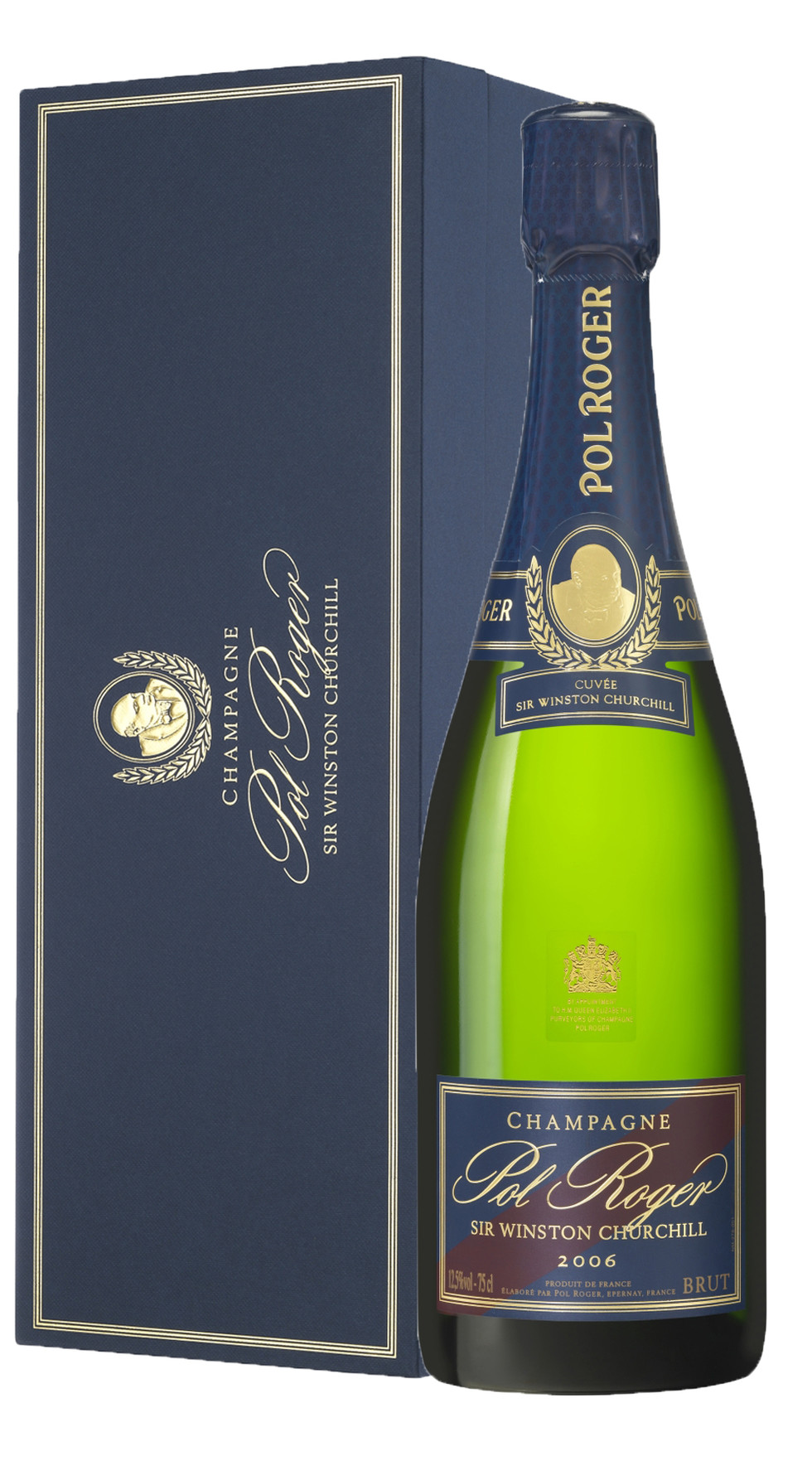
Brut Champagne Cuvée Sir Winston Churchill 2008 by Pol Roger
This is where Champagne wines get their designation—in this case, brut. The various classifications and their corresponding sugar levels are as follows: Extra brut: 0 to 6 g/L (grams per Liter) of residual sugar. Brut: 0 to 12 g/L (grams per Liter) of residual sugar. Extra dry: 12 to 17 g/L (grams per Liter) of residual sugar.
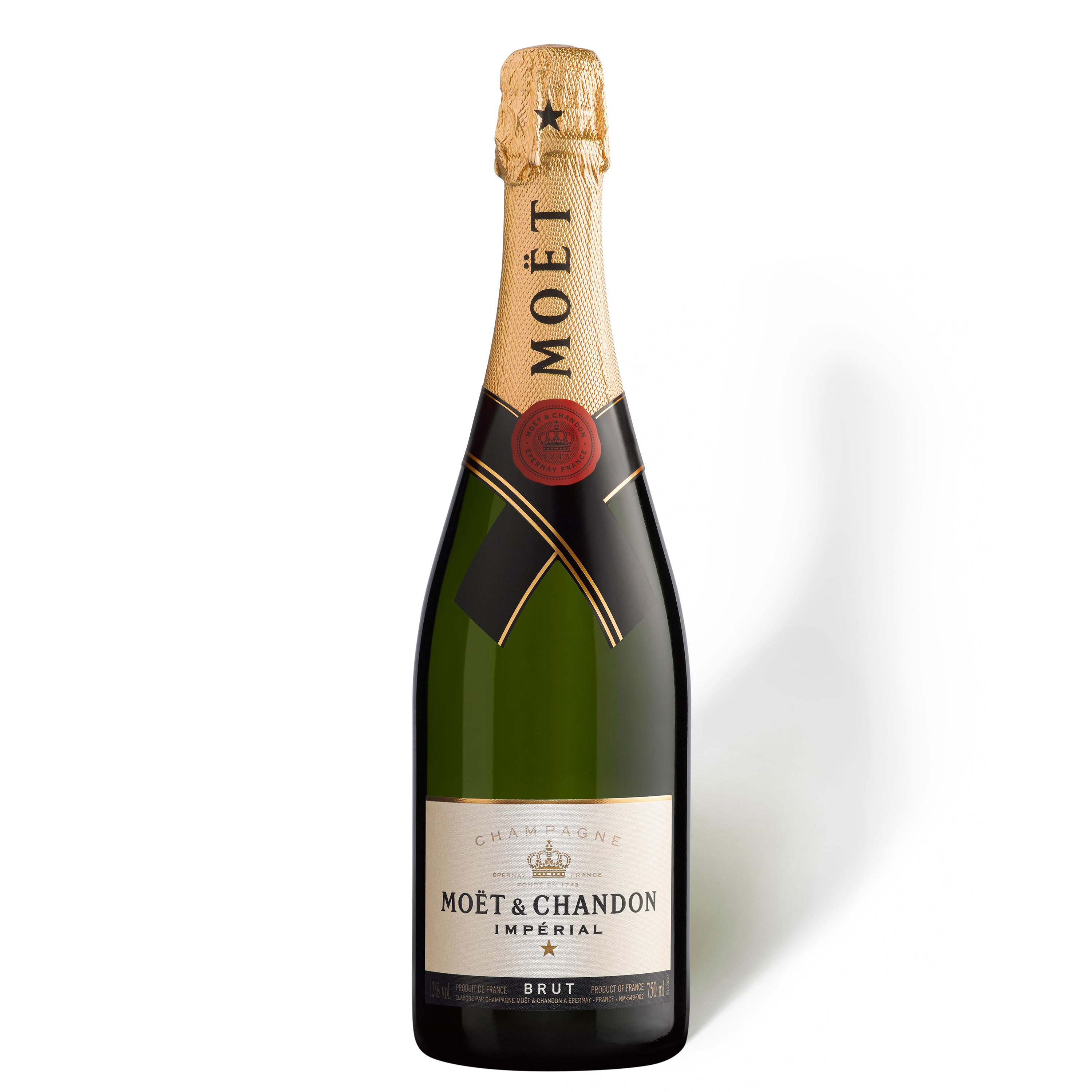
Buy Moet And Chandon Brut Imperial Online for Home Delivery Champagne
Brut simply means "dry, raw, or unrefined" in French. This makes sense, considering Brut is the driest of all champagnes. It can be confusing for non-French speakers, as Extra-Dry champagne is actually sweeter than Brut, containing 12-17 grams of added sugar per liter.
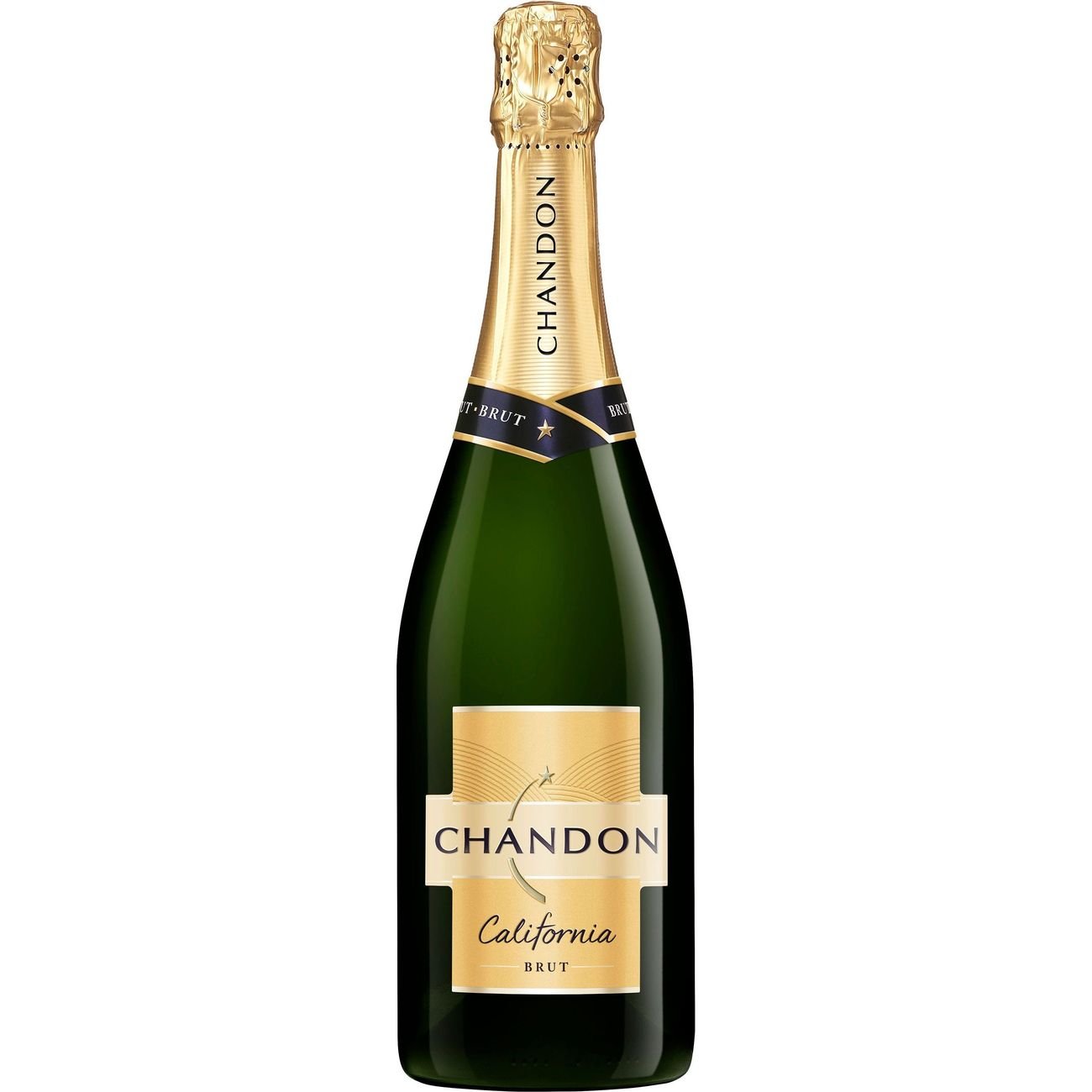
Domaine Chandon Brut Classic Shop Wine at HEB
Champagne is classified by sweetness. Brut, which means "dry, raw, or unrefined," in French, is the driest (meaning the least sweet) classification of Champagne. To be considered Brut, the Champagne must be made with less than 12 grams of added sugar per liter. Brut Champagne is the most common style of sparkling wine.

Moët & Chandon Brut Imperial LCBO
Doux 50+ g/L RS. 30+ calories and more than 7.5 carbs per 5 oz (~150 ml) serving. More than 121 calories per serving of 12 % ABV sparkling wine. Brut has a lot of wiggle room in sweetness, whereas Extra Brut and Brut Nature have focused sugar content. So, if you want to keep it on the dry side, opt for Extra Brut or Brut Nature if it's available.

Moet & Chandon Imperial Brut (12L Balthazar) Premier Champagne
Defining Brut Champagne "Brut," a term often floating around in Champagne circles, simply means dry. But don't get it twisted, not the Sahara-desert kind of dry but a wine dryness. Specifically, a brut Champagne has a residual sugar content of less than 12 grams per liter.

Pommery Brut Royal, dry champagne, 075l worldwidespirits
Brut champagne, a dry sparkling wine, is the most popular type of champagne exported from France. With a small amount of natural sugars remaining in the wine, brut champagne is a balance of crisp fruit, buttery notes, and minerality. Naturally effervescent, brut champagne has high acidity that contrasts nicely with the bubbles and mellows.

Moet & Chandon Imperial Brut (375ml Half Bottle) Premier Champagne
Blanc de Blancs. (white of whites) This is a blanc style Champagne made with 100% white grapes. In Champagne, this means the wine is 100% Chardonnay. Blanc de Blancs typically have more lemon and apple-like fruit flavors. There are, of course, a few rare exceptions to this rule with a few very rare grapes (in the same region), including Pinot.
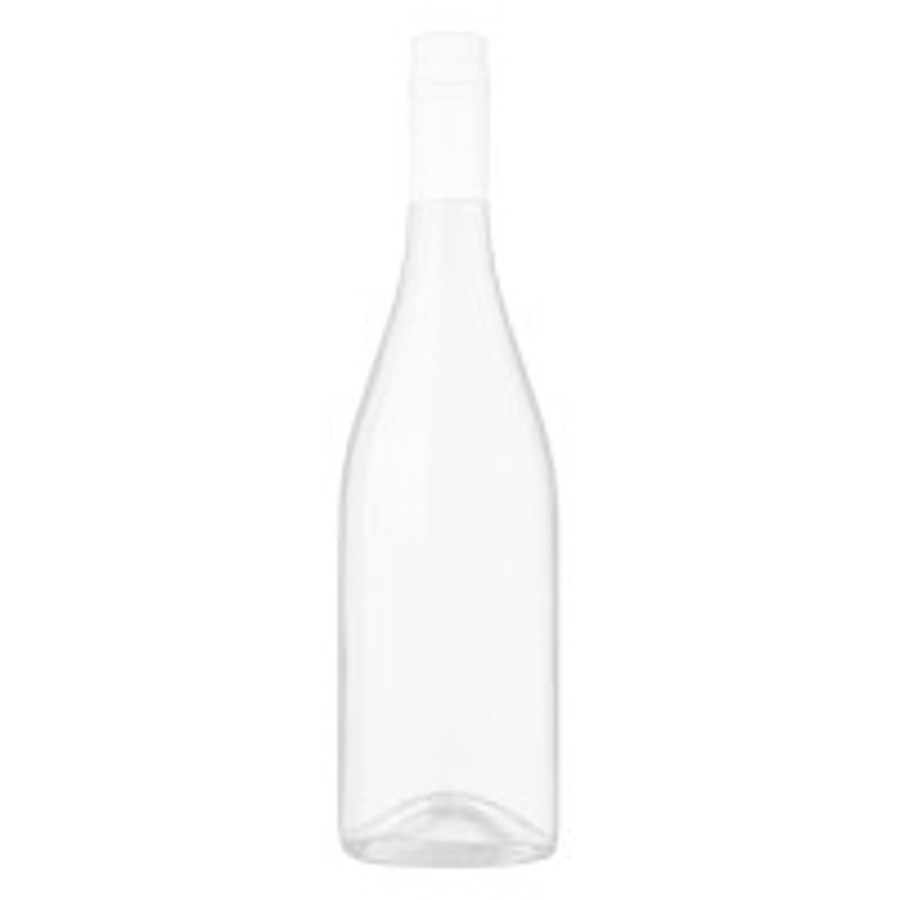
Andre Brut Champagne
If bruts are the defining style of dry Champagnes, demi sec bottles are the darlings of the sweet sparkling wine category. Though the term translates as "half dry," demi-sec Champagnes are on the sweeter side. They are preferred with desserts, rich savory dishes like foie gras, and certain cheeses. They can also create bold pairings with other.
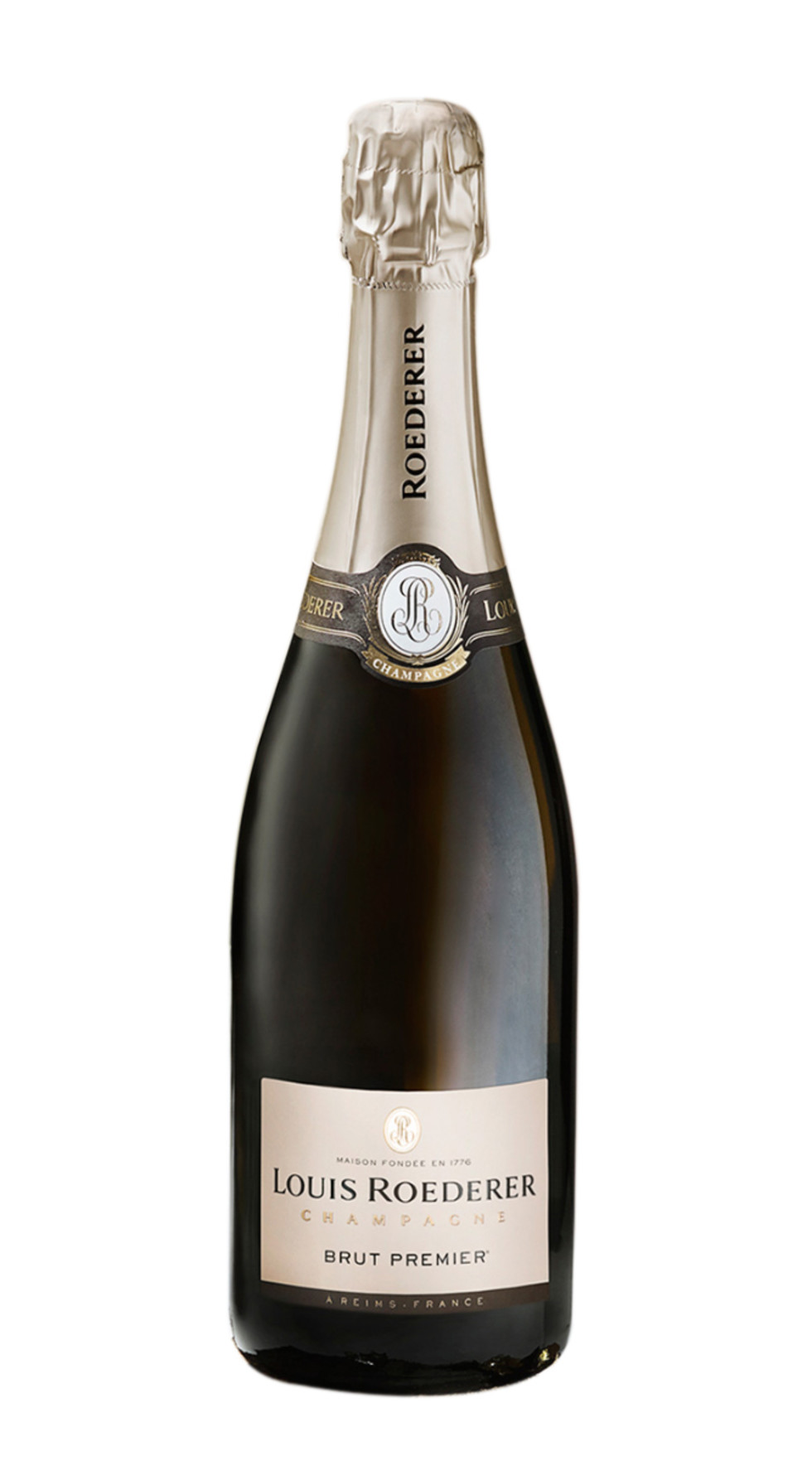
Champagne Brut Premier Louis Roederer Callmewine
Extra Dry is Sweeter than Brut. Extra dry champagne is sweeter than the brut ones. The sugar content in most brut wines only amounts to 1.5% of their total volume while extra dry ones amount to about 2% of their total volume. Winemakers typically classify champagnes according to their sweetness and dryness. An example of this classification is.
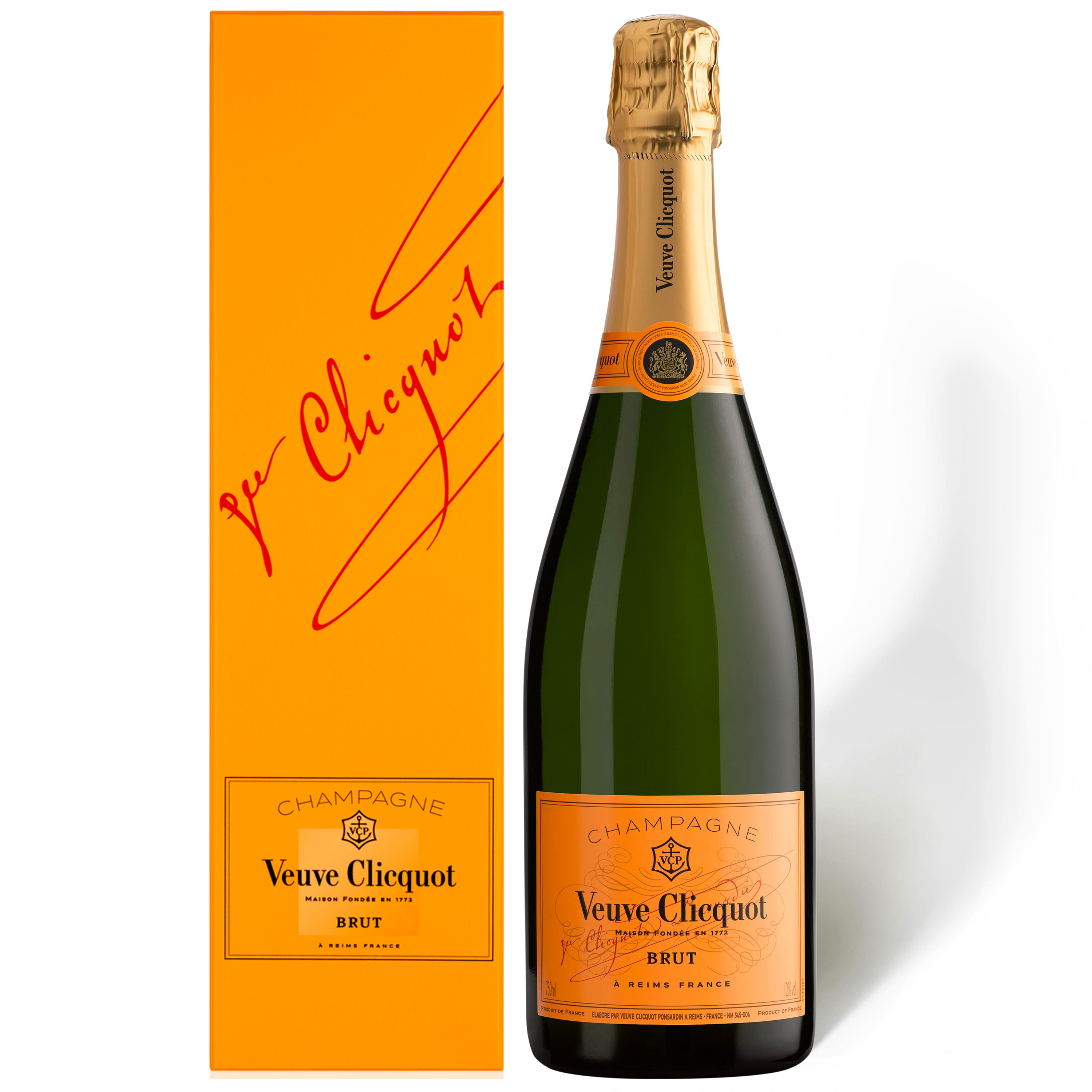
Buy Veuve Clicquot Yellow Label Brut for Home Delivery Buy online for
Nicolas Feuillatte Brut Réserve. Wonderfully generous and almost sweet with ripe fruit, Feuillatte's Reserve Exclusive represents excellent value in a category that often skews a bit more.
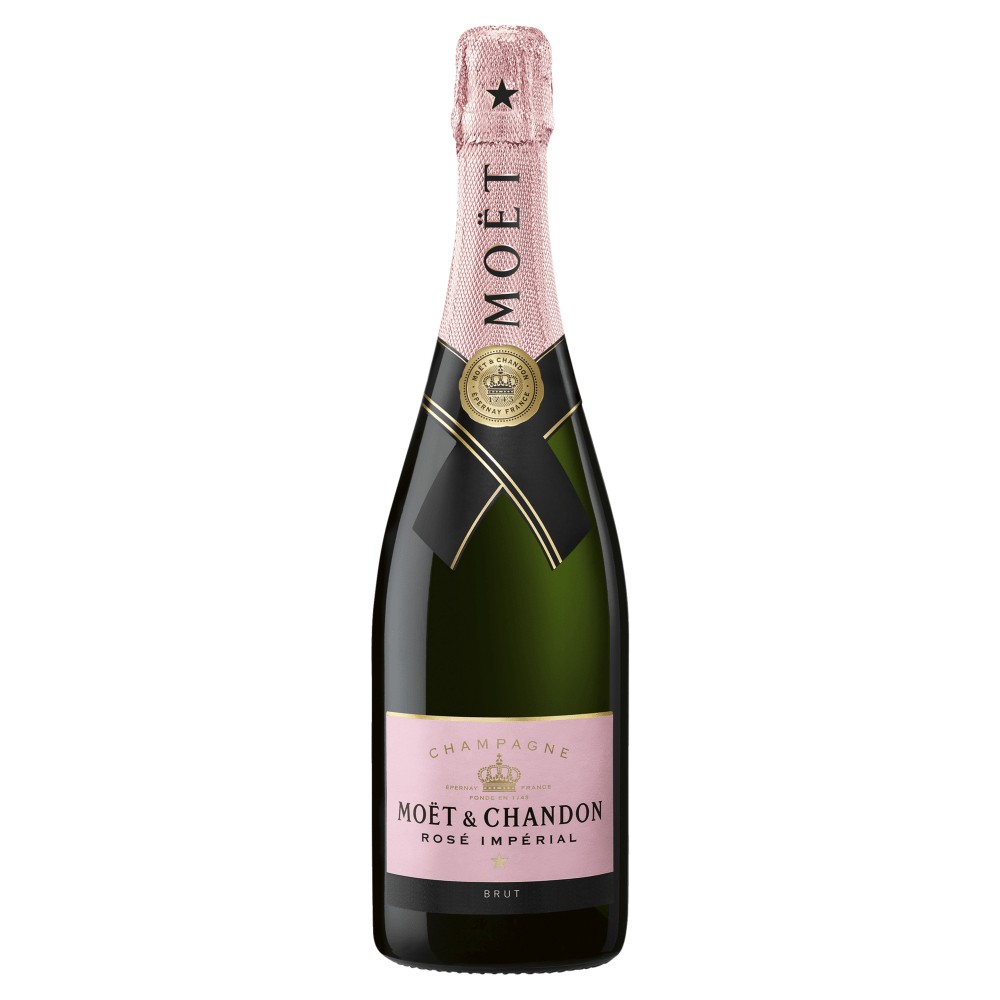
Moet & Chandon Brut Rose NV 750ml 🍇 Broadway Wine N Liquor
The main differences between Brut and Extra Dry are: Brut is a less sweet version of champagne, whereas Extra Dry has more focused sugar content. Brut is dry on the palate and sour, whereas Extra Dry is not as dry and tastes less acidic. Brut can boost an appetite, so most people usually serve it before meals, whereas Extra Dry is a preferred.
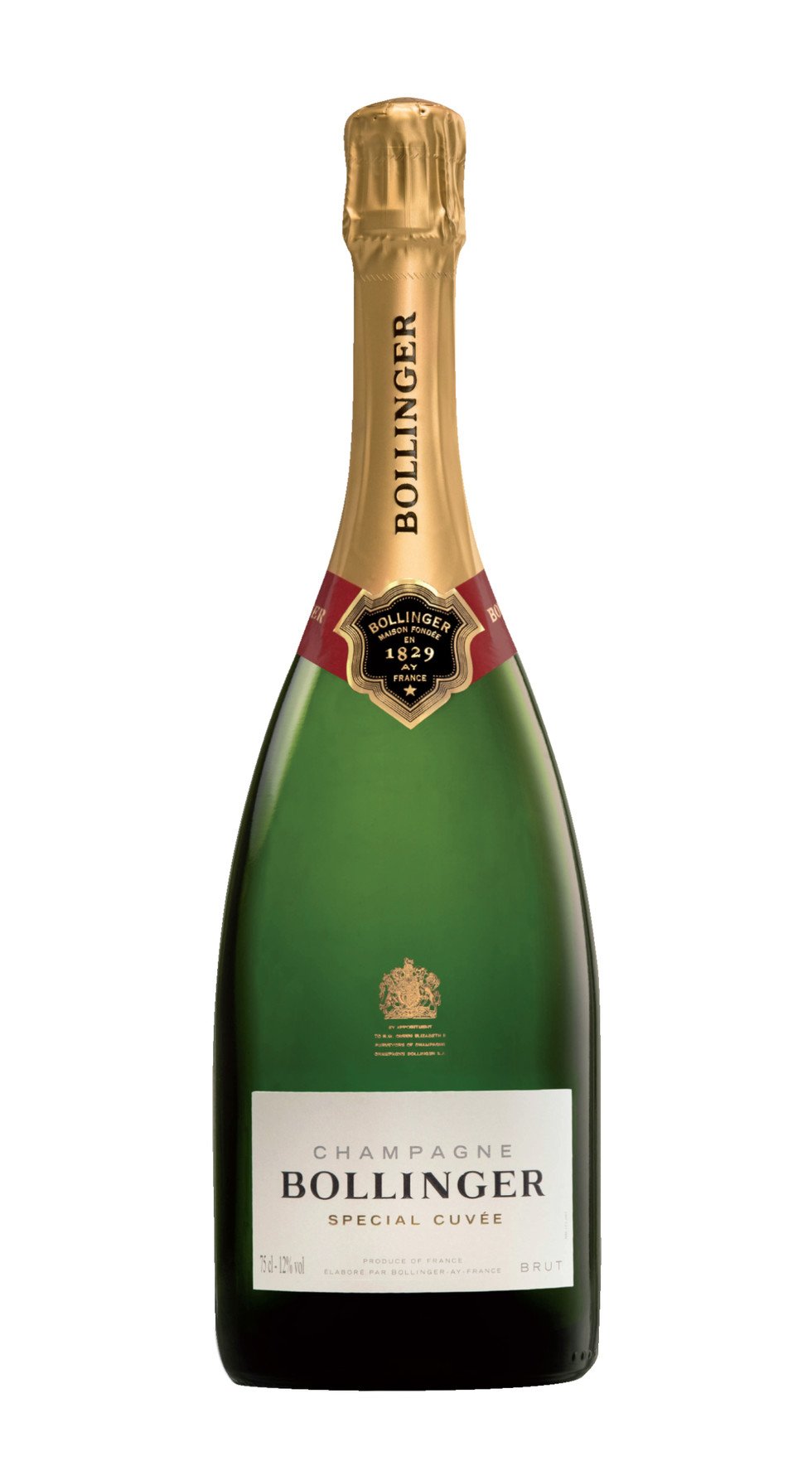
Champagne Brut Special Cuvée Bollinger Callmewine EN
Brut, which includes reds, whites and rosé, is the most popular category of dry sparkling wine. However, it's not the driest. Beyond brut, Champagne with zero to six grams per liter of residual sugar can be labeled extra brut, and if a sparkling wine has less than three grams per liter of residual sugar, it is labeled brut nature or zero dosage.
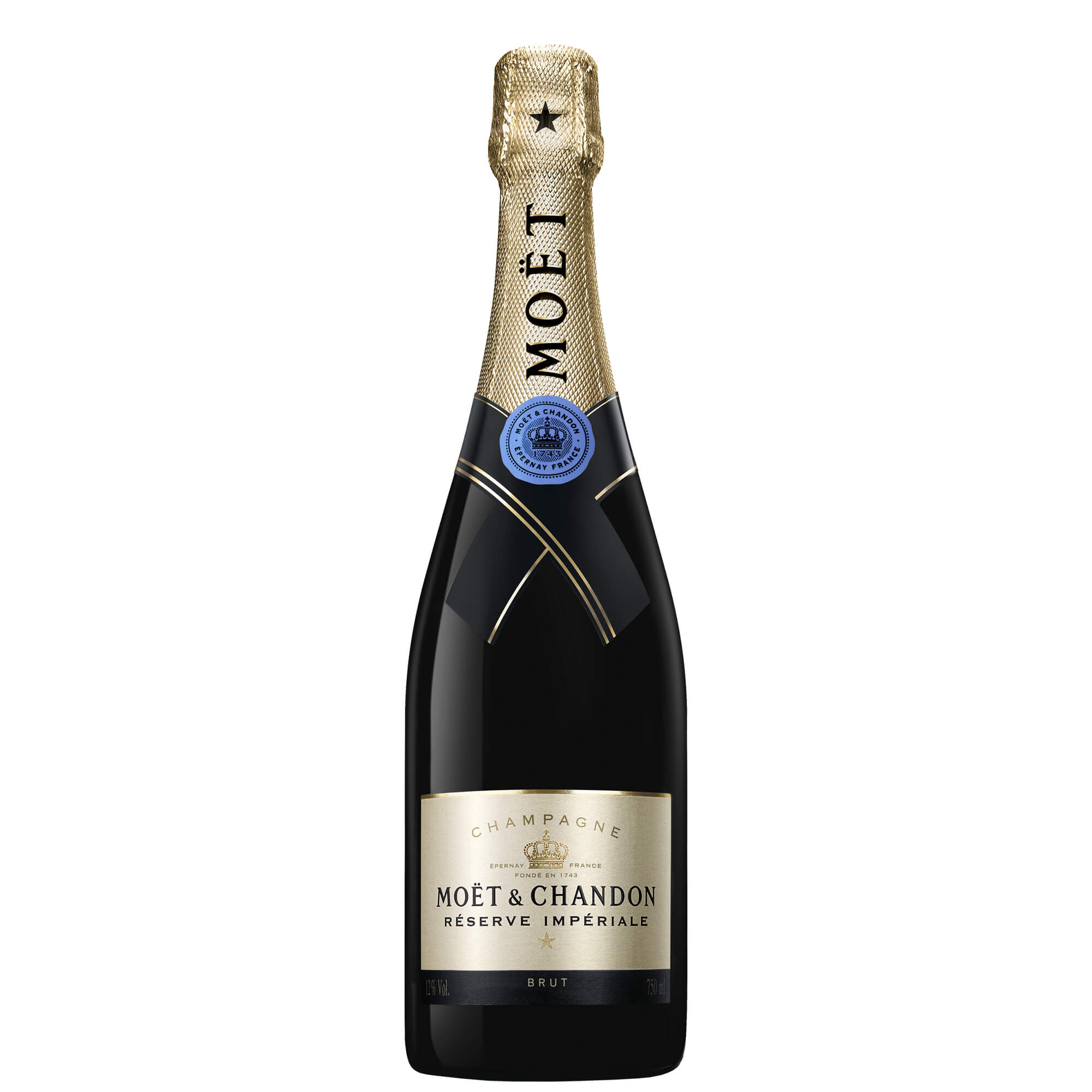
Champagne Brut "Réserve Impériale" Moët & Chandon
Anyways, the main difference between Brut and Extra Dry champagne is the level of sweetness in the beverage. It may sound weird, but the Extra Dry champagne is considered to be sweeter than the Brut one. Brut means "dry" or "raw" in French. It makes sense, as this champagne itself tastes pretty dry and just 1.5% consists of sugar.

Champagne black label brut botella 75 cl · LANSON · Supermercado El
If Brut means a dry Champagne, you'd be forgiven for thinking that Extra Dry (also called Extra Sec) must refer to one that's even less sweet. But the opposite is true. While Brut must have less than 12 grams of sugar per liter, Extra Dry can have between 12-17 grams of sugar. That adds an extra hint of sweetness, but not so much that the.
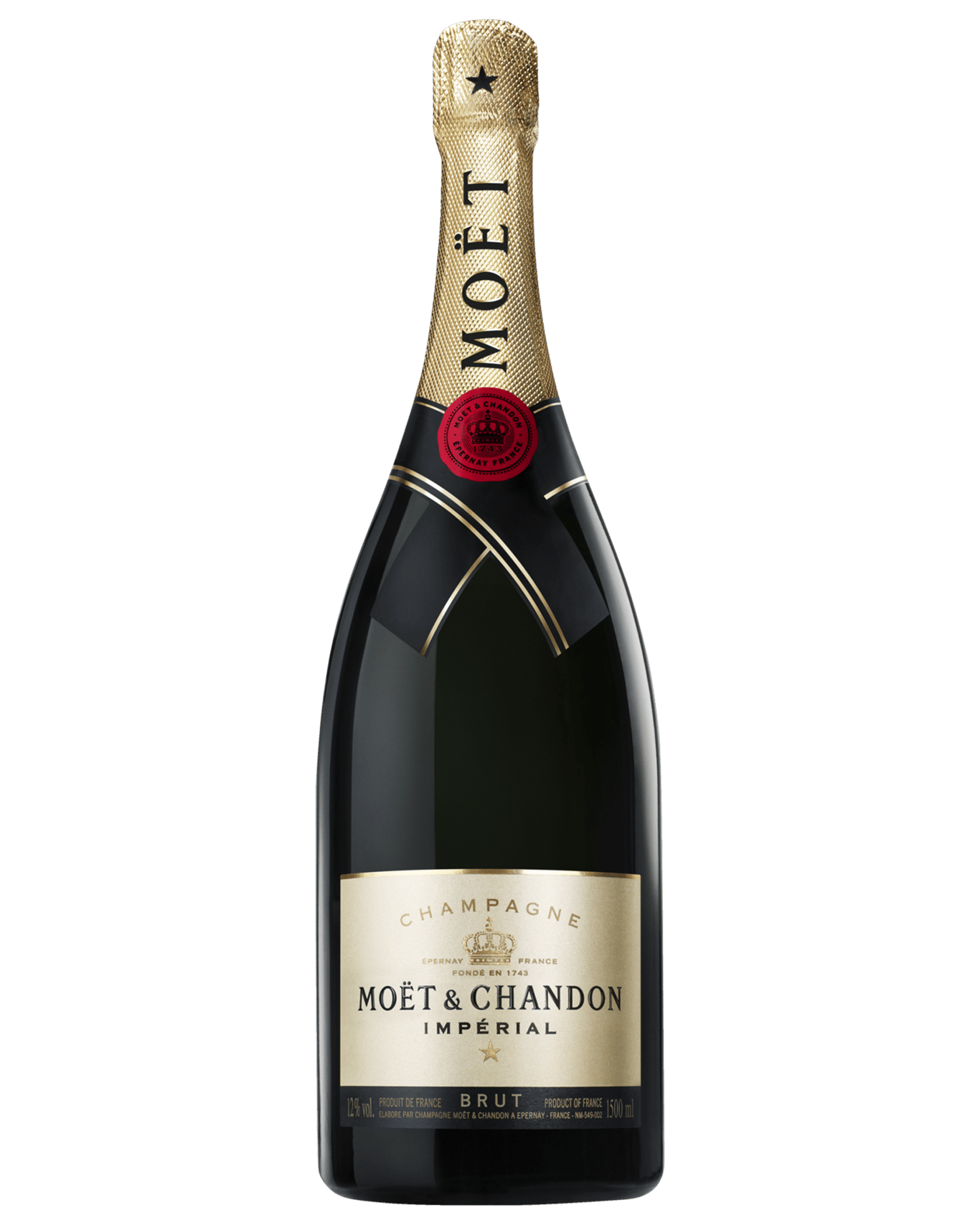
Buy Moët & Chandon Brut Impérial Magnum 1.5L Online (Lowest prices in
In fact, Extra-Dry Champagne can contain as much as 5 grams more sugar per 5-ounce serving than Brut. When sipping your glass of Extra-Dry Champagne, you may detect notes of citrus and green fruit along with flavors of brioche and almond. This wine pairs well with soft cheeses, buttery cream sauces and seafood such as shrimp, salmon and caviar.